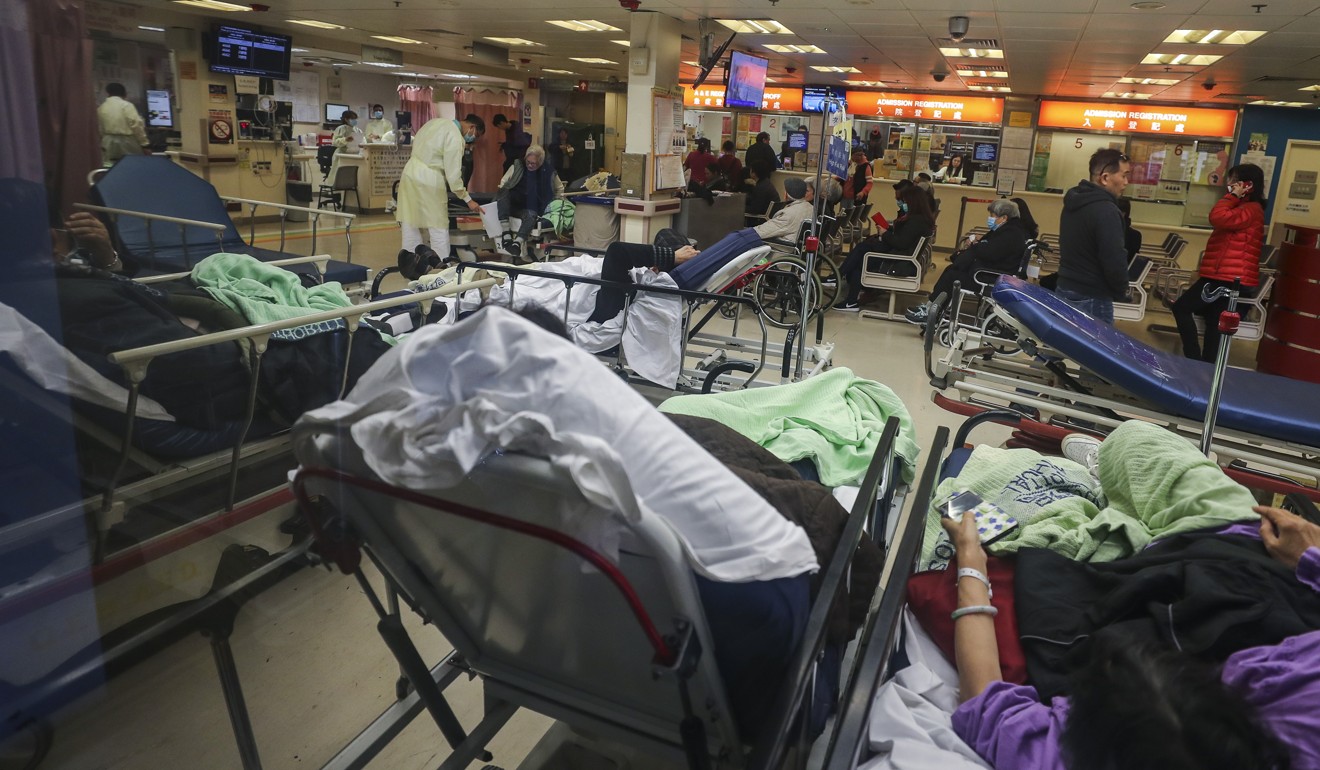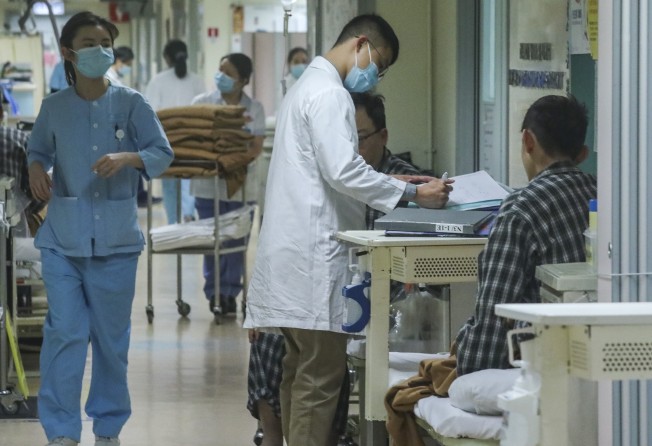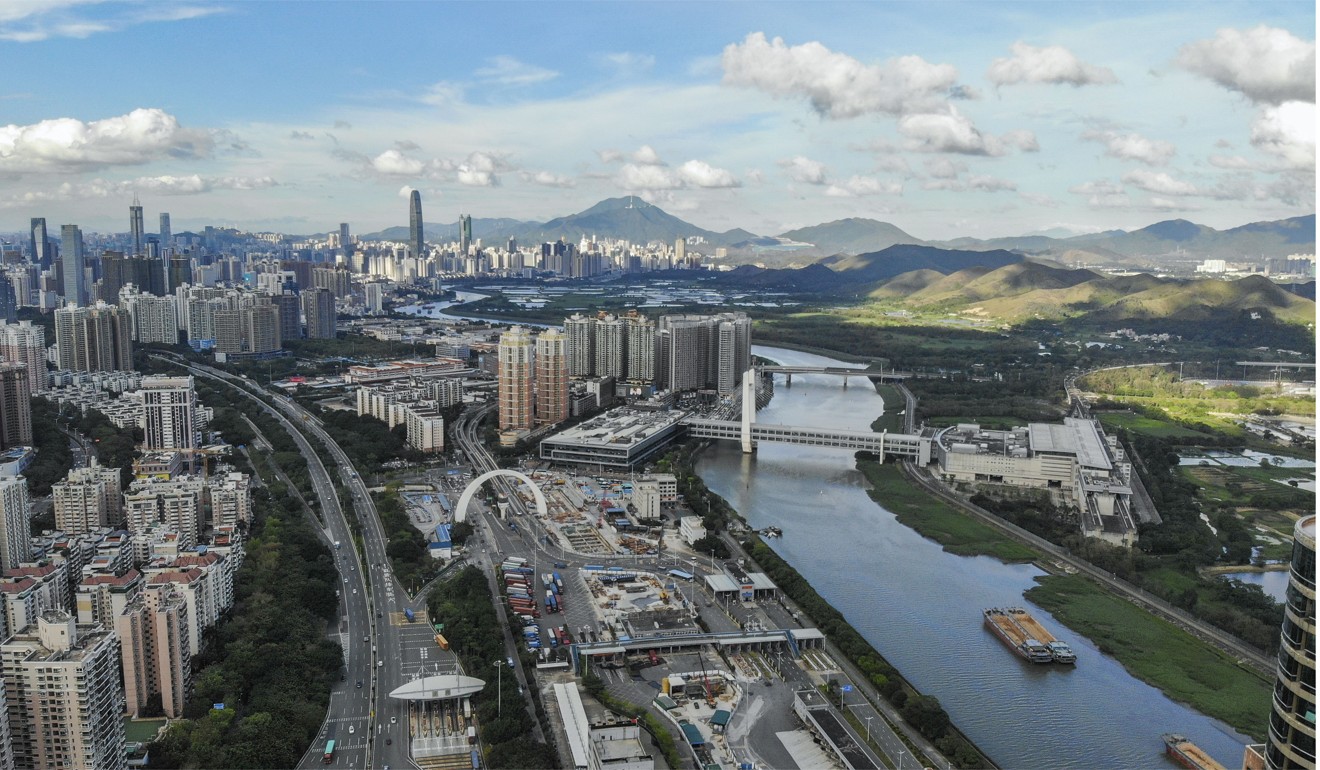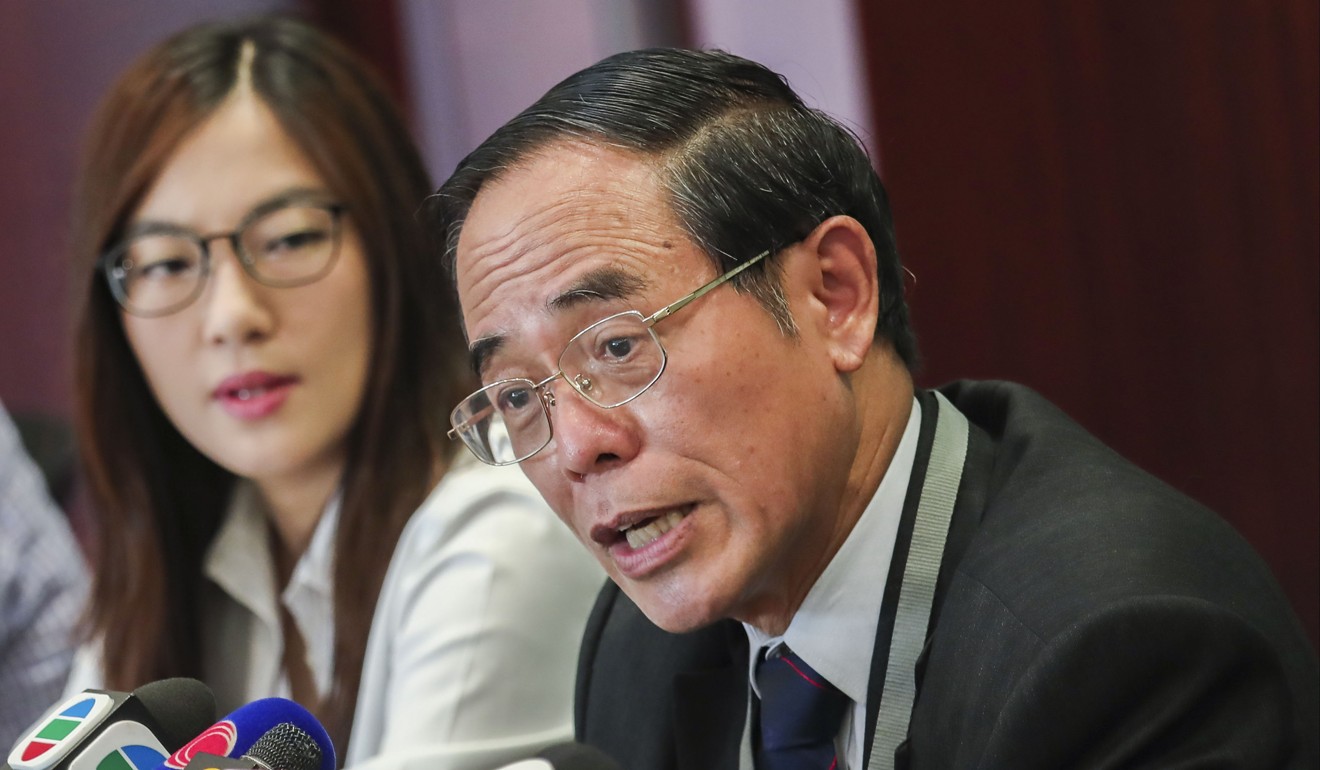
Hospital transfer service would be for Hongkongers only, Carrie Lam says in response to fears mainland Chinese users could overwhelm medical staff
- Greater Bay Area plan calls for scheme to transport patients back to city from mainland China, but doctors and patients’ groups want clarity on who would be eligible

Hong Kong’s leader on Wednesday moved to allay fears that overloaded public hospitals could be further burdened by a proposed scheme to transfer patients from mainland Chinese facilities, saying only city residents would be eligible.
Chief Executive Carrie Lam Cheng Yuet-ngor was pressed on whether the government had consulted hospitals close to the border on the proposal, which was floated on Monday as part of the central government’s blueprint for the “Greater Bay Area”.
“The plan is about transferring Hongkongers only,” Lam said at a Legislative Council session. “I hope you’re not discriminating against these people.”

But Democratic Party legislator Helen Wong Pik-wan said much of the plan, including a cross-border referral scheme among public hospitals, had yet to be clarified.
“It’s good for the chief executive to make that clarification, but there is still much obscurity in the plan,” Wong said hours after Lam’s session.
“For example, the plan proposes to explore cross-boundary referral of patients between designated public hospitals. I worry that this scheme might bring non-Hong Kong residents in the Greater Bay Area to public hospitals in Hong Kong.”
Doctors and patients’ groups earlier sought clarity after the Food and Health Bureau said the cross-border transfer arrangement would allow Hong Kong patients in a non-critical condition on the mainland to be sent back to the city.
On Tuesday, a bureau spokesman said the main purpose was to help Hongkongers living in Guangdong return for treatment or recuperation, and that in principle the government supported the plan.
But medical practitioners and patients’ representatives said many details were unclear, and expressed concerns mainland Chinese residents might also use the service, placing further strain on local hospitals.
Alex Lam Chi-yau, a solicitor and chairman of concern group Patients’ Voices, said: “The government must further clarify. I still can’t understand the logic. If patients are not in a critical condition, they can return to Hong Kong by themselves,” he said on a radio show on Wednesday morning.
Local public hospitals have been collectively short of up to 300 doctors at times, and their resources are further stretched every year during the flu seasons.
The transfer proposal is part of the Greater Bay Area project, a plan to integrate 11 cities in southern China into an innovation and technology hub by 2035.

It pledges to “study the provision of land-based cross-boundary transfer services for non-emergency and non-critically ill patients” and “explore setting up pilot projects for cross-border referrals to designated public hospitals”, but does not make clear whether this would be a two-way system.
Dr Ho Chung-ping, vice-president of the Hong Kong Medical Association, said local facilities would be crushed if a referral service was open to mainland patients.
“Public hospitals are already overcrowded. The situation would become unbearable,” Ho said.
But both Alex Lam and Ho felt the arrangement would be beneficial if only Hongkongers living in Guangdong were eligible.
“It’s our responsibility to take care of Hong Kong patients,” Ho said.
Those in need of urgent care would first be sent by ambulance to the Lo Wu checkpoint, before being transferred to a Hong Kong ambulance and sent to North District Hospital in Sheung Shui – the nearest public facility.

The bay area plan also suggests “encouraging medical professionals in Hong Kong and Macau to conduct academic exchanges in the nine cities around the Pearl River Delta, and private practitioners to operate across the border for short terms”.
Ho said the idea of leaving the city for work in Guangdong was not practical for doctors in the public sector.
“They wouldn’t have time. But some private doctors may be capable,” Ho said.
Alex Lam disagreed with the assertion that doctors under a heavy burden at public hospitals might be tempted to leave Hong Kong to practise on the mainland if doing so became easier.
“We can’t be looking at the Greater Bay Area while stepping all over Hong Kong people,” he said. “If we are already short of doctors, Hongkongers won’t want theirs practising in other places.”
Meanwhile, to tackle a shortage of nurses in the workforce, Baptist University plans to launch a new self-funded nursing programme as early as this year.
Its president Roland Chin Tai-hong said on Wednesday the university was waiting for final approval from the Nursing Council of Hong Kong. Once given the green light, the first batch of nursing students could start in the 2019-20 school year.
School of continuing education dean Ronald Chung Chi-kit said the five-year programme would cover both Chinese and Western medicine.
Classes would be held at its Kowloon Tong campus as well as in hospitals.
Chung said the institution was hoping to admit a few dozen students in the first year.
Additional reporting by Rachel Leung